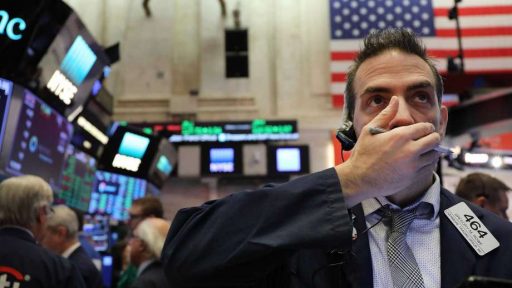- Home
- >
- Stocks Daily Forecasts
- >
- 3% on the US Treasury yield is ‘just a number’ — but the real concern could lie ahead

3% on the US Treasury yield is ‘just a number’ — but the real concern could lie ahead

Global equities pulled back Monday as the U.S. benchmark yield closely hovered around the psychologically significant 3 percent level.
Traders and analysts were busy trying to explain its importance, with all of them noting that 2014 was the last time that the 10-year was at such a handle. Reuters said that this level had previously triggered "market spasms," "rocked risk appetite" and also came shortly before oil's 75 percent price tumble.
However, some cooler heads in the investment community were quick to point out that it is just a number.
Ben Rogoff, a fund manager at Polar Capital Partners, told CNBC Monday that the real concern would be when the interest rate on that bond neared 3.5 percent, and even higher.
"I think somewhere between there (around 4 percent) and where we are today, there's trouble ahead and I think that really does explain the change in volatility that we are seeing in markets," he said.
Rogoff believes that at 4 percent for the U.S 10-year, pension funds around the world start to immunize their portfolios. He added that the relative attraction of bonds over equities changes at 4 percent. He added that at 3.5 percent, equity markets struggle to expand their PE (price-to-earnings) ratios — which is an important metric used by traders to gauge the value of a company's stock.
Traditionally, higher rates make equities less attractive, but it can also signal that an economy could be at risk. As the 10-year is such a benchmark for global debt, it means that the debt repayments for a whole range of companies also rise. Thus, they have to spend more to finance their debts. The worry being that companies get squeezed, and are forced to pull back on investment.
"I think what we probably have seen... earlier in the year in January when yields were lower and volatility was still looking very much like 2017, rather than 2018, we may have seen peak PE on equity markets, which again is a very big statement to make," Rogoff added.
Over the weekend, research from Morgan Stanley analysts said that a break above 3 percent suggested that 3.25 percent wouldn't be far behind. It also turned "tactically neutral" on the U.S. Treasury market as "risk-reward looks poor."
Source: Bloomberg Pro Terminal
 Trader Aleksandar Kumanov
Trader Aleksandar Kumanov Read more:
If you think, we can improve that section,
please comment. Your oppinion is imortant for us.











